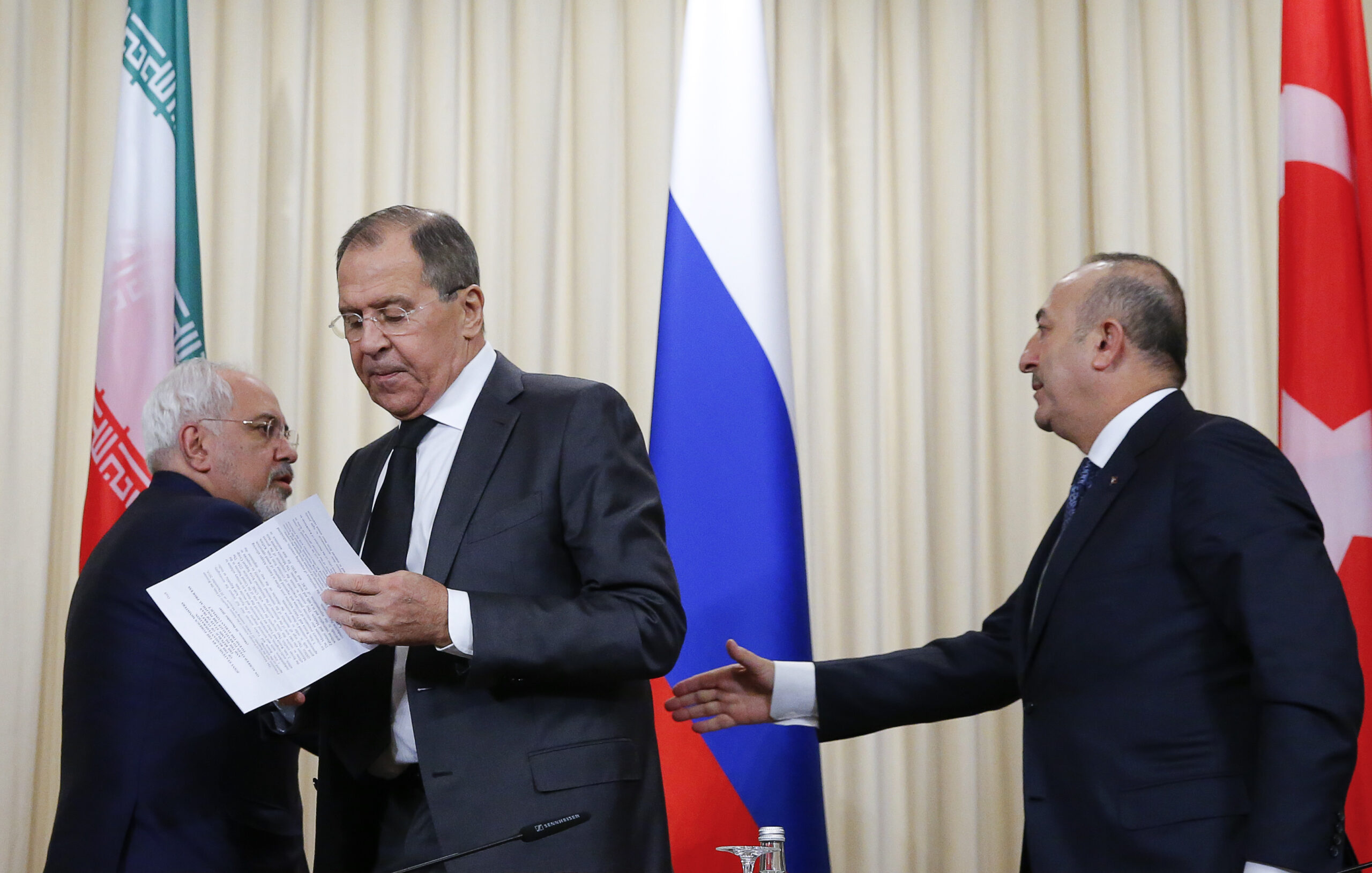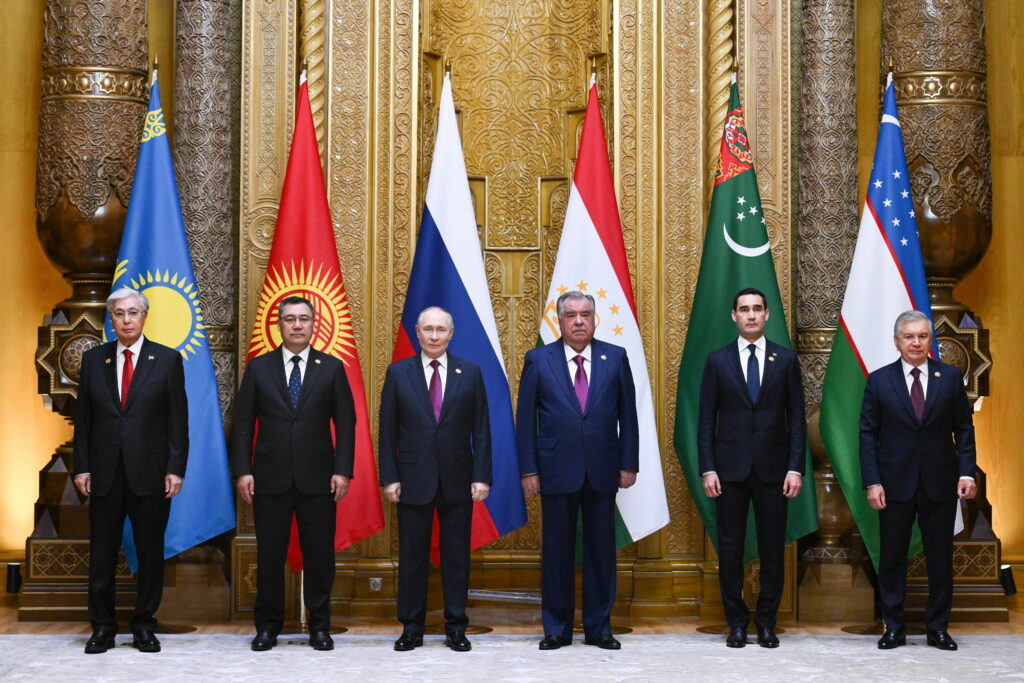Russia’s restrained reaction to the 12-day war between Israel and Iran was less a result of the Kremlin’s preoccupation with its military campaign in Ukraine and more a logical outcome of its alliance-building policy. Even in the «pre-Ukraine» period, Moscow could offer Iran little more than symbolic support, akin to an «approving pat on the shoulder.» Meanwhile, the informational myth of a Russian-Iranian tandem was often exaggerated, independent of Moscow and Tehran’s intentions, with many Western politicians and experts significantly contributing to the illusion of strengthened military ties.
Since Russia’s intervention in the Syrian civil war, claims of «enhanced cooperation between Moscow and Iran’s ‘Axis of Resistance’» and a «new level of Russian-Iranian military partnership» gained widespread traction. Moreover, the expert community actively promoted the idea that Tehran paved the way for Moscow’s return to the Middle East. This narrative suggested that Iranian general Qassem Soleimani, the architect of Iran’s regional security system, who was killed by the U.S. in Iraq in 2020, had personally convinced Vladimir Putin to intervene in the Syrian conflict and establish close cooperation with Iranian forces in combat operations. This, it was claimed, allowed the Kremlin to assume the role once played by the USSR in the region.
Tehran’s decision to supply Moscow with drones for use in the Ukraine war, where they served as an alternative to scarce and expensive precision weapons, sparked a new wave of discussions about the transformation of Russian-Iranian partnership. The Russian side deliberately fostered and sustained the illusion of a coalition-like relationship, hinting at its military dimension. For instance, Russian Foreign Minister Sergey Lavrov emphasized that the comprehensive strategic partnership agreement signed in January 2025, which is largely ceremonial, includes cooperation in security and defense. As a result, the nature of Russian-Iranian relations has been so distorted in the information space over recent years that inflated expectations likely emerged even among Iranian officials.
On the other hand, Moscow’s relationship with Ankara appears free of illusions: their rivalry in the post-Soviet space, the Middle East, and Africa persists and is intensifying. However, as Kremlin-aligned political analyst Fyodor Lukyanov noted, the two sides can «bring each other certain benefits and, more importantly, avoid causing significant harm, which each could inflict on the other if desired.» Lukyanov clearly refers not only to the official Russian-Turkish trade turnover, which exceeds Russian-Iranian trade by at least tenfold. Amid the focus on growing antagonism in Russian-Turkish relations, another aspect is overlooked: the benefit of competition with Ankara for Moscow’s inert foreign policy. This rivalry spurs Russia to take active steps and seek solutions often uncharacteristic of its bureaucratic institutions.
Iran’s Support
The specifics of Russia and Iran’s anti-Western cooperation are well-known: their relationship, largely driven by anti-globalist partnership, develops unevenly, with periods of progress and setbacks due to disagreements and mutual grievances. For example, a leaked audio recording of Iranian Brigadier General Behrouz Esbati, claiming that Moscow systematically misled Tehran during the Syrian campaign, provided further evidence of serious contradictions. Nevertheless, both sides sought to smooth over these differences by expanding cooperation in other areas, driven in part by Tehran’s recognition of inevitable confrontation with the West before the 12-day war and its pursuit of multilateral engagement. As a result, Tehran agreed to increased activity by Russian intelligence services (FSB, GRU, and SVR) on its territory to project influence further in the Middle East.
Iranian proxy forces occupy a unique position in this dynamic. Western experts have often been tempted to link the development of Russian-Iranian relations with Moscow’s expanding contacts with Iran’s «Axis of Resistance,» but it is hardly possible to speak of real synchronization in these processes. Rather, Moscow took tactical steps without focusing on building long-term strategic ties.
Contrary to widespread rumors that Qassem Soleimani convinced the Kremlin to intervene in the Syrian war in July 2015, this is not accurate: his visit only finalized details. By the time Soleimani arrived in Moscow, Russian military specialists had not only selected a deployment site but had already secured the perimeter around Basel Assad International Airport, where the Hmeimim base was later established. Moreover, to avoid chaos, Russia’s Defense Ministry attempted from the outset to integrate numerous Shiite international units into its three-tiered command system in Syria, consisting of a combat control group, troop command, and operational advisory groups on tactical fronts. The latter were tasked with coordinating with diverse Syrian regular and paramilitary units, including Afghan, Pakistani, Iraqi, and Lebanese Hezbollah fighters.
The most successful example of Russian military cooperation with Hezbollah was the 2016 operations in eastern Aleppo, where Lebanese units were integrated into a tactic of localized small-scale actions along the contact line, combined with converging assaults to split the city. The operation was planned and executed by Russian forces, with Iranian proxies involved due to a shortage of capable local forces. However, further cooperation with Hezbollah did not develop.
In 2018, Russia’s Defense Ministry attempted to exploit divisions in Lebanon to supply certain weapons, but despite some agreements, the proposed arms package was never finalized, despite significant Russian credit concessions. Meanwhile, Russian businesses—NOVATEK and Rosneft—gained access to Lebanese economic projects in 2018 and 2019 with active support from the Russian Foreign Ministry and the Kremlin. These projects were intended to supply the Assad regime with scarce fuel, but after February 2022 and sweeping sanctions, such activities became impossible.
The only notable success was the Russian Defense Ministry’s coordination of the deployment of several dozen Hezbollah operatives to the Ukrainian front to study Western equipment and modern combat tactics. The Wagner Group also attempted to establish ties with Hezbollah’s leadership and recruit in Lebanese villages, but, according to a former Hezbollah official, «nothing came of it.»
Overall, Russia’s intervention in the Syrian war opened opportunities for deeper cooperation with pro-Iranian forces. However, these ties were largely driven by circumstantial factors and used by the Kremlin to project influence or as a tool for leverage. For instance, Moscow maintained contacts with the Houthis before the Syrian campaign without Iran’s involvement but paid little attention to Yemen until 2024, when Putin’s threats to supply weapons to Western adversaries resurfaced amid Ukraine’s authorization to use long-range missiles.
The Obvious Flaw
In «returning» to the Middle East by supporting the Assad regime, Moscow primarily relied on its own capabilities but was well aware it operated under Iran’s cover and amid the activity of its numerous allies engaged in prolonged ground operations. At the time, Russian experts believed Iran had successfully built an «Axis of Resistance,» forcing regional and external actors to account for this «arena integration» (Syria, Iraq, Lebanon, Yemen) in military planning.
However, the Kremlin, like Iran’s leadership, likely failed to recognize the fundamental flaw in this «architecture.» The «arenas» united by Tehran were already in deep, persistent economic crises. Israel’s intelligence and military prowess lies not only in conducting specific operations against Tehran and its proxies but in its strategic exploitation of this instability.
For instance, Hezbollah, a key Iranian ally due to its proximity to Israel, has long been more than a military-political movement in Lebanon, serving as a representative of the Shiite community’s interests. However, its growing influence and political intrigues led to a crisis in Lebanon’s elite relations with Arab monarchies that could have provided financial aid for recovery. Opening a front against Israel amid a severe political-economic crisis to support Hamas resulted in Hezbollah losing local allies and being unable to escalate the conflict with the IDF and Mossad on its terms, especially given their ability to conduct complex operations like the «pager» attack. This led to an unprecedented weakening of Hezbollah and its subsequent «silence”—whether coordinated with Tehran or independent—during the 12-day Israel-Iran conflict.
The Benefits of Competition
Despite existing tensions, Iran remains a tactical ally and anti-Western partner for Russia, while Turkey, especially in Kremlin propaganda, is portrayed as an adversary and NATO member. Examples of Russian-Turkish competition abound, with the ultrapatriotic Russian Telegram channel «Ribar» claiming this rivalry knows no bounds.
In Syria, Ankara directly supported the opposition in overthrowing the Russia- and Iran-friendly Assad regime and advocates for reducing Russia’s military presence at Hmeimim and Tartus bases. In Libya, Turkey forced Haftar’s forces and Wagner mercenaries to retreat from Tripoli. In Nagorno-Karabakh, it facilitated one side’s victory, while in Central Asia, it encourages the independence of former Soviet republics through integration projects. These countries help Russia bypass sanctions but reject the Kremlin’s previously condescending approaches, as seen in Moscow’s interactions with Baku.
However, the paradox of Russian-Turkish relations and their conflict potential stems from the similarities between the personalized regimes of Putin and Erdogan and their mutual affinity. Viewing the Kremlin’s «humiliations» from another perspective, the actions of a traditional adversary can be seen as those of a «frenemy.»
In Syria, Turkey’s influence forced Moscow to engage with the opposition, simulate a political process, and led to the new Islamist government’s foreign minister meeting Putin, as Damascus seeks to avoid full dependence on Ankara. In Libya, Russian-Turkish agreements stabilized the country’s division and later enabled expanding Turkish business activity in Haftar’s eastern territory, where Russia’s African Corps operates. In Karabakh, the joint Russian-Turkish monitoring center allowed the Kremlin to quickly counter claims of lost influence in the South Caucasus. Azerbaijan’s 2023 victory in the «third war,» backed by Turkey, enabled Russia to finally resolve a post-Soviet «hotspot» despite costs. In Africa—particularly Burkina Faso, Niger, and Mali—Turkey competes with Russia’s African Corps but supports the stability of Moscow-friendly governments through intelligence, SADAT PMC operations, and reconnaissance-strike drones. Turks also occasionally mediate where Russians cannot, will not, or lack the ability, such as in the Mali-Algeria diplomatic conflict.
Turkey’s reputation as a pragmatic trader and NATO member with strained Western ties helps Moscow navigate its foreign policy repositioning, bypass sanctions, and cover covert activities in the Middle East, including espionage (which Iran also conducts in Turkey). Ankara occasionally imposes demonstrative restrictions on Russian businesses, but these are soon eased or serve as cover for larger cooperative projects. For instance, public discussions about banking issues often distract from Turkey’s record exports of oil products from Russian crude to the U.S. and Europe, offshore fund creation, and supplies of high-precision welding and cutting machines, spare parts, and even passenger aircraft to Russia.
Ultimately, while Iran served as a pillar in Russia’s «return» to the Middle East and Africa, Turkey, as a competitor, acts as a catalyst, pushing Moscow to overcome political inertia and move beyond its propaganda clichés. Turkey’s political elite—both ruling and opposition—seeks to significantly enhance its role not only in troubled regions but also in Europe, where its growing military power and key Black Sea position are seen as critical to security, per the Turkish presidency’s narrative. This opens opportunities for Moscow to revise failed approaches and build a genuine security architecture, rather than resorting to ultimatums and military ventures that only strengthened a NATO bloc previously undergoing disarmament before 2022.









